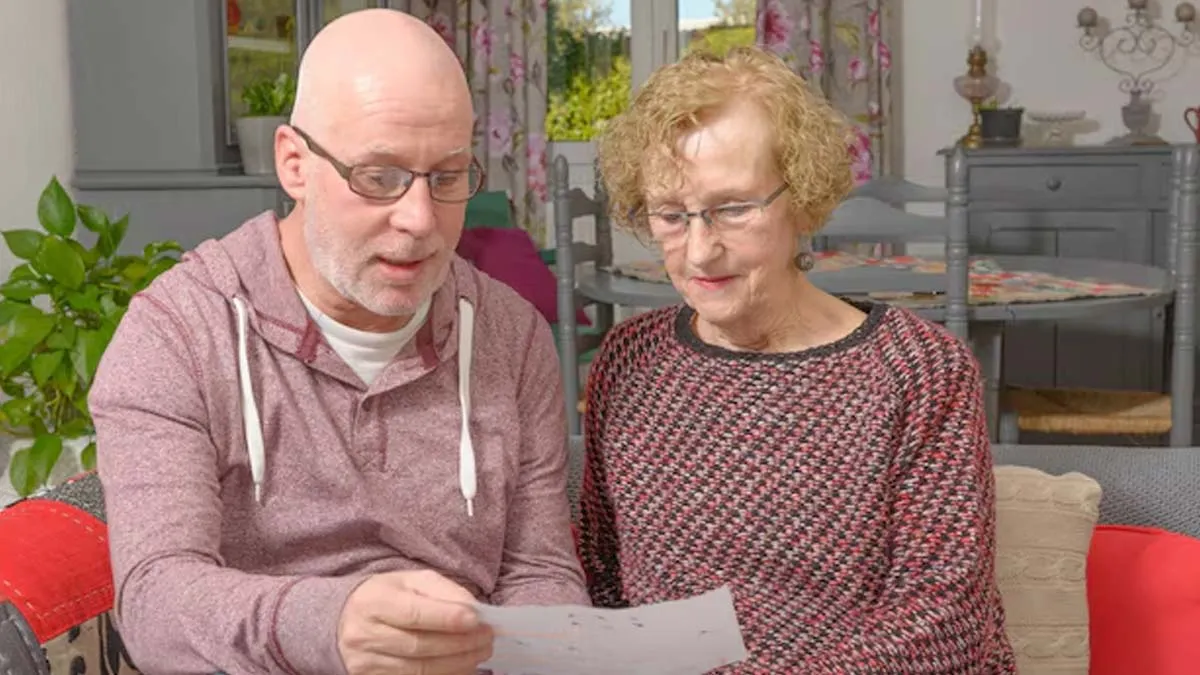
When a parent begins to lose their memory, it feels like you are walking on a path that is constantly falling apart under you, with every step bringing the scary truth that the ground you used to share is gradually and irreversibly vanishing. All of a sudden, the person you have always known, the one who taught you so much, is changing, and finding ways to connect becomes crucial, even if it is tough.
Table of Content:-
CHECK YOUR
MENTAL HEALTH

We spoke to Neha Sinha, Dementia Specialist, CEO and Co-founder, Epoch Elder Care, Delhi, who shared tips for communicating with a parent living with memory loss.
Communicating With Alzheimer's Patient

“Communication in memory care needs to evolve with the condition itself. As verbal abilities decline, non-verbal cues start to matter more. Research consistently shows that elders with dementia hold on to their emotional memory far longer than they do to facts”, said Sinha. According to the International Psychogeriatrics, Alzheimer’s patients and healthy elders recalled emotional images, especially negative ones, far better than neutral ones, showing that emotionally charged memories last longer while neutral details fade.
It is the tone of your voice, the look on your face, and your demeanour that tend to linger long after the words are forgotten. Visual aids, such as gestures, images, or pointing, can fill in the gap when words fail. We must be aware if a loved one with dementia is showing a behavioural problem. It is vital to stop and investigate instead of responding because each of these is a way of communicating in itself, which displays distress, confusion, or unmet needs.
Also Read: Alzheimer's Stages: Symptoms As The Disease Progresses
How to Start the Conversation Gently
When you first start to notice those moments of forgetfulness, it’s understandable to feel the storm of emotions. Naturally, you always have this strong desire to help, but where do you even start that conversation? “The most crucial thing is to approach it with kindness and understanding. Instead of directly addressing the memory issues, you might suggest a visit to the doctor as a routine health check-up. You could emphasise that it will help them stay independent and healthy for a longer time. Also, informing them that some amnesia is common with ageing will ease their anxieties and encourage them to seek professional help.
Focus on Emotions, Not Logic

“Caregivers and families need to shift the way they engage. It’s not about correcting memory or insisting on what is real and what’s not. It is about responding to the emotion in front of you, preserving dignity, not logic. Often, something as simple as a reassuring smile can go a long way. Managing one’s own emotions before interacting with them is also crucial, as our mood can have a profound impact on theirs,” said Sinha.
Validation techniques and emotion-focused communication work far better than trying to reason or explain. Because logic, in many cases, only adds confusion or distress. Pausing before speaking, using familiar terms, maintaining eye contact, and keeping sentences simple are all proven techniques to ease communication.
More importantly, consistent presence, even in silence, offers reassurance and stability. For more than a decade, we have been training our teams to listen with presence, speak with warmth, and respond with empathy. Because in memory loss, what may be forgotten cognitively can still be deeply felt emotionally.
Also Read: Is It Normal Forgetfulness or Signs Of Dementia? Expert Shares How To Differentiate
Be Gentle With Yourself, Too
This journey is challenging; however, it provides an opportunity to deepen your relationship with your parents in various ways. Remember to be kind to yourself during this period, and don't hesitate to reach out to those who understand what you are going through. Your love and patience truly make a significant difference every day.”
[Disclaimer: This article contains information provided by an expert and is for informational purposes only. Hence, we advise you to consult your professional if you are dealing with any health issue to avoid complications.]
How we keep this article up to date:
We work with experts and keep a close eye on the latest in health and wellness. Whenever there is a new research or helpful information, we update our articles with accurate and useful advice.
Current Version